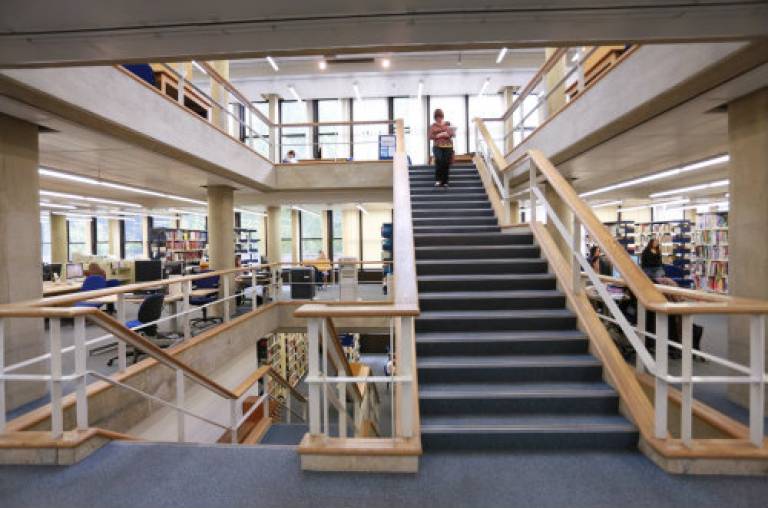Developing connections between educational research and practice
Professor Martin Oliver explains how the Doctor in Education EdD (UCL IOE) provides students with learning activities that help them, step by step, to become more able to undertake research.

13 October 2015
The Doctor in Education EdD at UCL IOE provides an opportunity for professionals in a range of areas related to education internationally, to explore what contemporary educational research is.
They go on to apply what they have learnt to their own areas of interest, tackling significant professional global challenges in education.
Creating a throughline of research
This is achieved by working with them in a carefully structured curriculum that builds a ‘throughline’ of research, culminating in a work-based research project.
Particular features of this process are working from reading to designing research; and developing an in-depth understanding of the ethical challenges of such work.
The EdD is a professional doctorate, with a focus on applied research and an explicit link to professional practice.
Students are part-time, from a wide range of educational roles internationally, and are expected to be employed throughout the programme.
Students typically join the programme in order to explore an interest in their current professional practice. The course is designed to help them engage with this in a systematic and scholarly way.
In the EdD, a throughline of research is created through the curriculum structure. The programme starts with three taught courses, including two modules on Methods of Enquiry.
Learning to 'read' research
Within these students are expected to read research.
They are explicitly introduced to how to read research – framing the reader as part of an ongoing conversation, not just a consumer outside of the discussion.
They are then introduced to core concepts, and use these to debate the epistemological, ontological and methodological issues in the readings. They then frame their own research proposal.
In the second Methods of Enquiry module, they move on to detailed engagement with qualitative and quantitative approaches, and design, carry out and report a small-scale study.
Work-based learning
After these modules the students move to the Institution Focused Study – an opportunity for work-based learning, where students undertake a research project in their own institution.
There are many ethical challenges in this kind of ‘insider research’, so this forms a strand through the two Methods of Enquiry modules (using workshops, case studies, fantasy projects and dilemmas, an ethics application for the small-scale study in the second Methods module and a separate ethics application for the Institution Focused Study).
During the Institution Focused Study, students have regular meetings with their thesis supervisor, providing input and expertise from leading researchers.
 Close
Close

